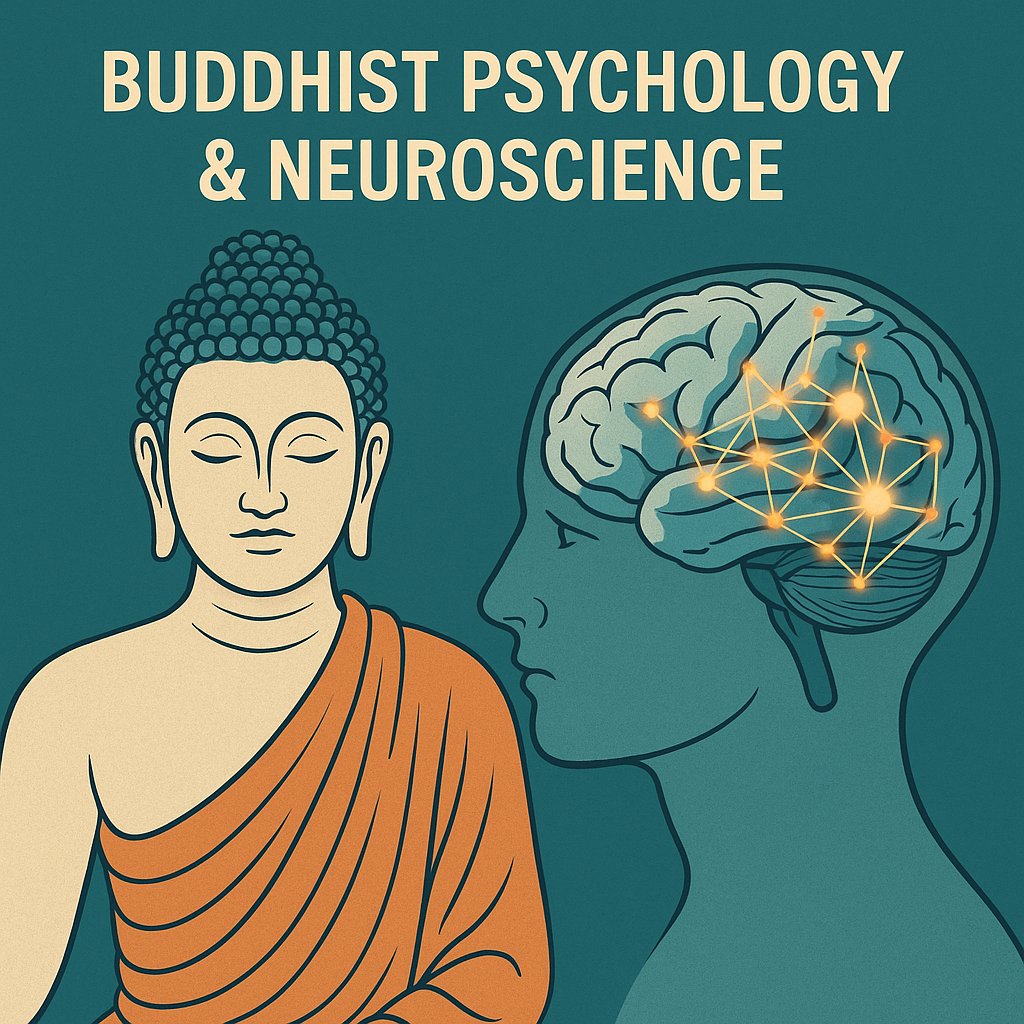In the last few decades, scientists have begun to confirm what Buddhist monks and meditators have known for over 2,500 years:
The mind can be trained. Suffering can be transformed. Awareness changes the brain.
From Buddhist models of the mind like the Abhidhamma to the latest discoveries in neuroscience and mindfulness research, a powerful bridge is forming — offering new hope for healing trauma, depression, anxiety, and addiction.
Let’s explore how Buddhist psychology and neuroscience are aligning in profound, life-changing ways.
What Is Buddhist Psychology?
Unlike Western psychology, which often focuses on diagnosing disorders and treating symptoms, Buddhist psychology is fundamentally ethical and experiential. It sees the mind not as a fixed thing, but as a dynamic process shaped by intention, perception, and karma.
At its core, Buddhist psychology aims at liberation — freeing the mind from greed, hatred, and delusion through practices like mindfulness (sati), concentration (samadhi), and wisdom (paññā).

The Abhidhamma: A Map of Consciousness
The Abhidhamma Pitaka, one of the core texts in Theravāda Buddhism, offers a deep, analytical model of the mind. It breaks consciousness into:
- Cittas (moments of awareness)
- Cetasikas (mental factors like attention, feeling, and volition)
- Rūpa (physical form)
It categorizes emotions, thoughts, and mental habits with remarkable precision — long before modern psychology or neuroscience emerged.
Today, cognitive science is beginning to mirror this complexity, using fMRI and neuroimaging to identify neural correlates of emotion, attention systems, and habit loops — echoing the Buddhist insight that the mind is conditioned, impermanent, and trainable.
Neuroscience Meets Mindfulness
In clinical and lab settings worldwide, Buddhist meditation practices are being studied for their powerful effects on the brain. The science is clear:
- Mindfulness meditation increases grey matter density in areas linked to emotional regulation and memory (like the hippocampus and prefrontal cortex).
- Long-term meditators show reduced activity in the default mode network, associated with rumination and self-referential thought — a hallmark of depression and anxiety.
- Just 8 weeks of MBSR (Mindfulness-Based Stress Reduction) has been shown to reduce symptoms of PTSD, chronic pain, and burnout.
Meditation for Trauma, Depression & Addiction
Psychologists and neuroscientists are now using Buddhist-inspired techniques in treatments for:
- Trauma: Meditation supports re-regulation of the nervous system, offering grounding for people with PTSD. Somatic mindfulness helps individuals reconnect safely with the body.
- Depression: Buddhist practices like loving-kindness (mettā) and equanimity (upekkhā) counteract the negative thought cycles that fuel depression.
- Addiction: Programs like Mindfulness-Based Relapse Prevention integrate meditation to build awareness of craving and disrupt the automaticity of substance use.
In all these cases, the emphasis is not just on symptom reduction — but on transforming one’s relationship to pain, emotion, and the self.
Karma, Neuroplasticity & the Changing Brain
A core idea in Buddhist psychology is that the mind is not static. We are what we repeatedly think and do. This aligns beautifully with the modern concept of neuroplasticity — the brain’s ability to rewire itself through repetition and intention.
- Karma, in its most practical sense, refers to habitual mental actions that shape our experience.
- Neuroplasticity confirms that each moment of attention — each act of mindfulness — literally reshapes neural pathways.
The Buddhist path is, in this sense, a science of mind: a step-by-step method for rewiring the brain toward compassion, clarity, and freedom.
The Promise of Integration
The convergence of Buddhism and neuroscience is not about merging belief systems, but about deepening our understanding of what it means to be human.
Therapists, researchers, monks, and meditators are now co-creating a world where contemplative wisdom and cognitive science support one another — from hospitals to classrooms to meditation centers.
This integration gives rise to:
- Trauma-informed Dharma teachings
- Compassion-based therapies (e.g., CFT, MBCT)
- Neurofeedback-enhanced meditation training
- Evidence-based Buddhist-inspired mental health programs
Final Thoughts: A Mindful Revolution
As Buddhist psychology and neuroscience continue to evolve side by side, the message is hopeful and urgent:
We can train the mind. We can reshape the brain. And we can heal — not just individually, but collectively.
In a world grappling with mental health crises and digital overload, the ancient insights of the Buddha offer not just relief, but a radical path of inner transformation.



